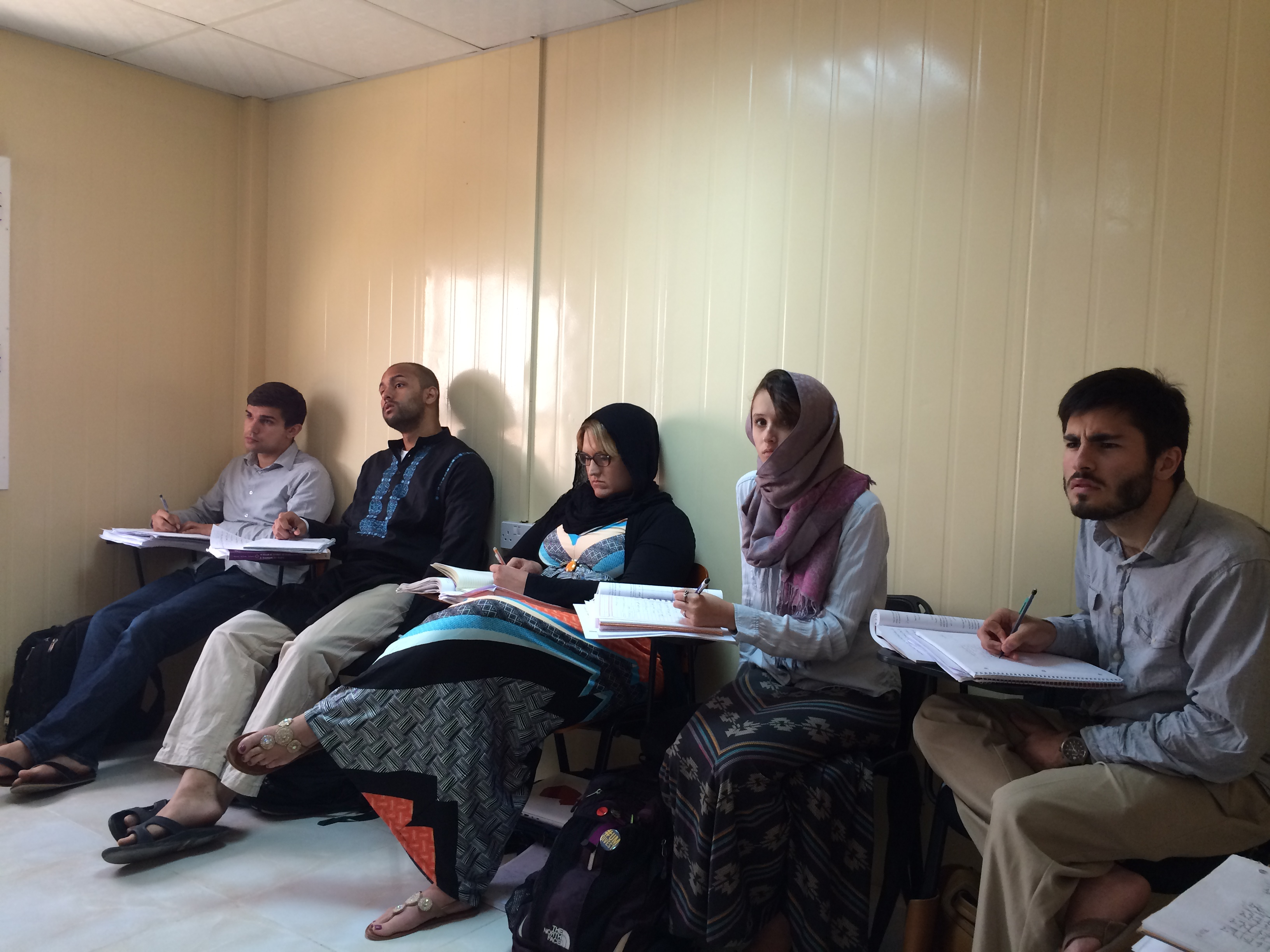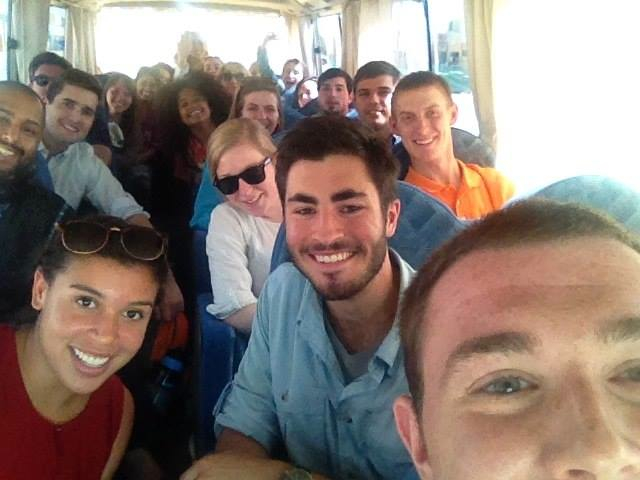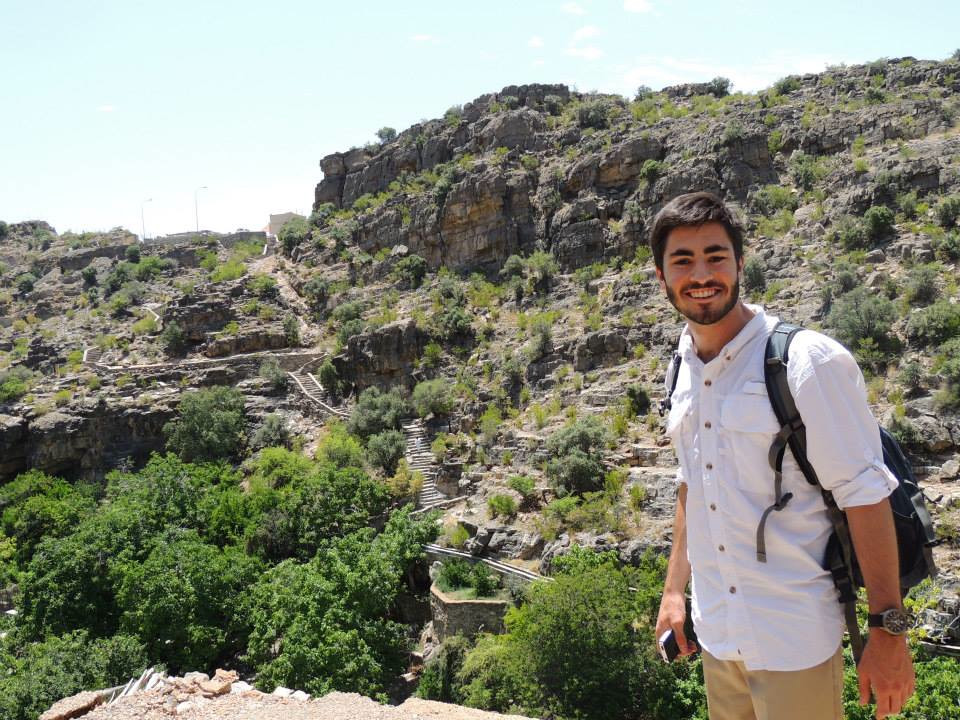Hello, readers!
Imagine: a foreign language professor is trying to explain to you a complex grammatical point about how the endings of words change depending not only on those words’ parts of speech, but also on how they’re being used in a sentence, and that you also have to keep in mind the order of the words in that sentence, not forgetting to factor in whether or not said words are definite or indefinite, or apparently indefinite except that they’re part of a construction that arbitrarily makes them definite because grammarians say so.
Now imagine that lesson is taking place in said foreign language, that the professor is a native speaker with a native (and seemingly impenetrable) accent, and that you do not know half of the grammatical terms they’re using.
The end result looks something like this (and I swear this photo was not staged):

I’m spending my summer in the town of Ibri, Oman, at the Noor Majan Training Institute, where I’m studying Arabic courtesy of the Critical Language Scholarship Program of the U.S. Department of State. My description was, of course, a bit overblown, but there have certainly been days here where I’ve felt a bit out of my depth, whether linguistically, scholastically or culturally.
In all seriousness, the learning curve going into an Arabic immersion classroom was steep, but it improved quickly. Our instructor, Ustaadha Habiba, calibrated her teaching style to our level, and we learned the necessary classroom vocab (and got accustomed to her accent) by sheer exposure and repetition. By the third or fourth week, moments of utter confusion were few and far between, replaced by a sense of basic understanding, punctuated by moments of excitement when we reached a sort of collective “breakthrough” moment.

Four hours seems like a lot of time every day to spend on a single subject, but we mix things up. Every class starts with a 15-minute taqdiim, or presentation, from one of the students on a subject of their choosing. Then, we usually progress into a lesson of some sort about a grammar concept, or the use of a new phrase, construction, or set of vocabulary, which we follow with conversations designed to activate what we’ve just learned. We end class most days with a debate or discussion centered around something from the news media, which is also enlightening because Ustaadha Habiba will talk about Omani perceptions of the issues at hand.
Although it proved difficult at first, having a native speaker conduct the class wholly in Arabic is probably the best part of the program. Comprehension improves through exposure, and I’m exposed to 20 classroom hours every week. It’s at times mentally exhausting, but the rewards are clear now whenever I can get through a conversation with Omanis—be they teachers, taxi drivers or young people—without asking them to repeat themselves or clarify for my clunky Western ears.
Until my next post, when I’ll talk about Omani culture and our travels around the country!







